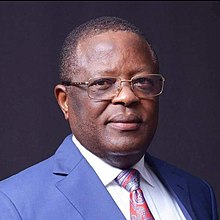The Federal Government on Monday called for a well-coordinated international cooperation to tackle the link between drug cartels and all forms of organised crime.
NDLEA Chairman, Retired Brig.-Gen. Buba Marwa, made the demand at the on-going 64th session of the UN Commission on Narcotic Drugs holding in Vienna.
NDLEA’s Director, Media and Advocacy, Mr Femi Babafemi, in a statement issued in Abuja on Monday said Marwa made other demands.
He quoted Marwa to have told the session that: “Nigeria calls for robust international cooperation to address the links between drug trafficking and terrorism.
“Nigeria calls for international cooperation to curb illicit financial flows, smuggling of migrants and other forms of organised crimes.
“We often underscore the importance of technical assistance by the United Nations Office on Drugs and Crime (UNODC).
“UNODC has greatly assisted beneficiary countries and positively impacted global efforts to counter and address the world drug problem, and we urge for the continuation of the assistance.
“Nigeria has continued to adopt her drug control policies and strategies to respond to emerging and evolving realities.
“In spite of the implementation of our framework and strategic action plan, however, trafficking and abuse of controlled substances persist.
“The cultivation and high traffic of cannabis and its abuse has been on the increase.
“The National Drug Use Survey, 2019, revealed that more than 10 million persons abused cannabis in a year.
“In similar pattern, the 2019 and 2020 World Drug Reports identified cannabis as the most abused substance with its threat to security, health and well-being of the global population,’’
Marwa also told the session that trafficking and non-medical use of synthetic and pharmaceutical opioids, especially Tramadol, remained a challenge.
“This is in spite of Nigeria’s domestic control efforts as well as tripartite meetings facilitated by UNODC, involving Nigeria, Ghana and India held in New Delhi and Lagos in 2019, to address the Tramadol crisis,’’ he said.
“Nigeria has decentralised the storage of finished narcotic drugs to ensure their access, availability and affordability for medical and scientific use.
“As a result, we are now able to optimise data collection and improve statutory submission of annual requirement to the International Narcotics Control Board with the launch of the national estimation survey in 2017 and 2019.
“Nigeria is on course to start local manufacture of narcotic medicines from two WHO-prequalified pharmaceutical manufacturers to ensure availability and meet national needs,’’ Marwa told the session. (NAN)




